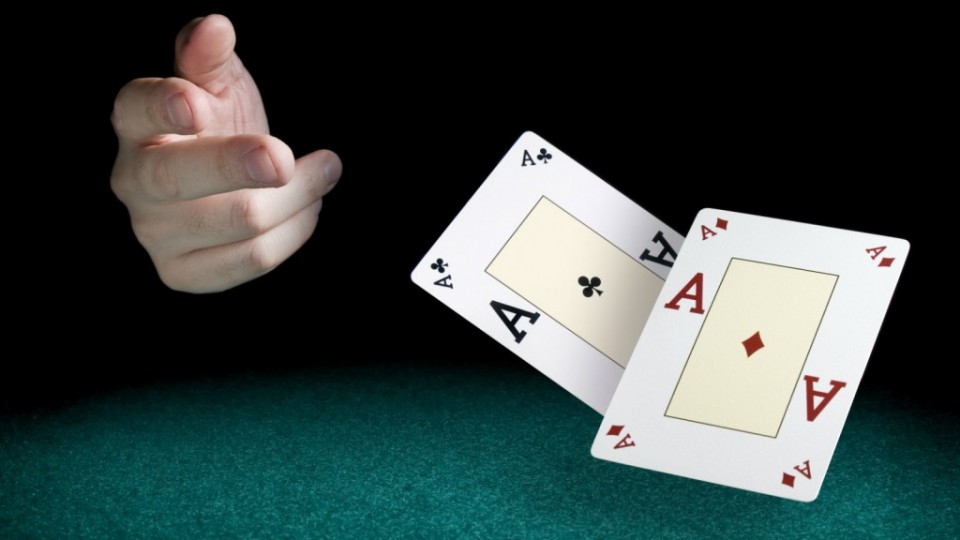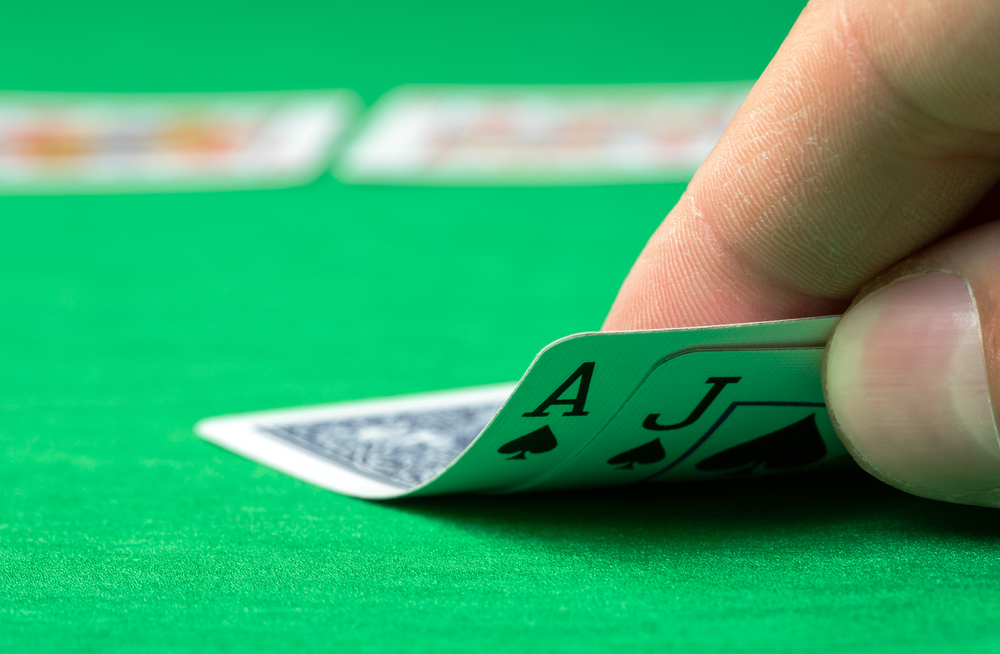How to Play When Your Are Holding the Nuts
9 years ago
15 Jun
We spend a lot of time considering how to play marginal hands and how to read our opponents. We look to build our talents dictating when to bet and when to fold, but we do not spend much time thinking about how to get the most out of those wonderful occasions when we hit the absolute stone-cold nuts and cannot be beaten in the hand. While it is important to learn how best to approach those marginal spots, it is also important to ensure that wherever possible, we gain the most chips, and a nut draw is a great place to rake them in.
There is nothing worse than getting pocket aces, raising to your standard 2.5x or 3x the big blind and watching everyone fold preflop. It is even worse to progress through a hand, acquiring the nuts along the way, then watching everyone fold because you play the hand in such a way that you make it too obvious.
There is a lot to think about when playing the nuts, yet many players simply sit back and relax feeling there is nothing to worry about as they cannot lose the hand. In fact, you should do the opposite, because the true indication of success in a situation where you hold the absolute nuts is not winning the hand, you have that done already, but how many chips you collect. If you win few chips, this is an opportunity wasted, even though there will be occasions where this is beyond your control.
With the nuts, our goal is to build the pot as much as possible and not to take any action which scares away our opponents. If you earn nothing and it’s your fault, this is bad play, but if you play well and extract plenty of chips from your opponent, then this is a job well done. Let’s look at some of the things you need to keep in mind in order to play these situations well.

Check That You Have the Nuts in the First Place
The nuts is a hand that your opponents cannot possibly beat no matter what their hole cards. For example, holding KK on a board that comes down 66K (full house for you). Q6 was looking great until the 6 hit on the river. In this example, the absolute nuts is any hole card that contains a 6. Your opponent was betting into your full house with a set and was a big dog in the hand until they got the nuts on the river, with the 6 completing quad sixes. Unlucky!
So take a second to check there is no hand that can beat you and do not get carried away. Many players think they have the nuts until their opponents show them the real nuts.You'll walk away with a great bad beat story at the end of the day, but I'm guessing you;d rather walk away with the money.
Consider the Community Cards and Your Opponent's Likely Hole Cards
No matter what your nut hand is, most of it will be visible to your opponents in the form of the community cards. A good player will look at what the strongest possible hand is and where a very strong hand is possible, a good player player will have noted the possibility you might have it. Consider what your opponent has, (after all they can’t have the nuts because you have it!), and play the board and not the player.
If there are two clubs and you are checked to on the turn, it might be worth checking back. You might decide a flop bet was designed to earn them a free turn card. Give it to them. Ideally you want them to hit their hand and be willing to call off or bet into you on the river.
If you have a hidden or gapped hand, you can bet more easily knowing the strength of your hand is disguised. Let’s say you checked an unraised pot from the big blind with 5c 7c where you managed to hit 6c, 8c, 4c on a dream flop for a straight flush. You can check call here and hope a blank turn hits which would eliminate any small chance of a higher nut hand. Your hand is now very disguised, and your opponent might put you on a set or flush draw rather than the monster you have. You can be more confident of a call than if the board was Ah, Kh, Qh where an opponent even holding a set or straight will be a little cautious because of a flop texture that literally hits everyone.

Do not slow down
Conventional poker wisdom tells us that in most cases, betting is better than checking and raising is better than calling. Texas Hold’em is an aggressive game and with modern poker based on aggression, if you suddenly slow down and begin to check-call rather than betting into opponents, even your average opponents will begin to a smell a rat very quickly. Check folding is far more common post flop when players totally miss the flop and decide to give up. If you call, this should set off alarm bells in your opponent's minds.
As the hand progresses, your opponents will attempt to put you on a range of hands once you voluntarily invest money into the pot. Check calling announces more loudly than we would like that we remain the hand for a reason. Only the weakest opponents will ignore this and keep firing bets into you, not thinking about why you are still in the hand.
Many players slow down so as not to scare their opponents away, but unfortunately, this change of tactics can backfire and almost turn your strong hand face up to a good opponent.
What does your opponent think about you?
Be aware of your table image. Following a tough beat or when you have just lost a big pot is the best time to catch a monster as your bets could be interpreted as you tilting rather than you cleverly betting for value holding the absolute nuts. In this situation, you can bet for value on every street and the strength of your hand will be disguised. Without overselling, if you have a subtle air of frustration this will look like you are steaming. The praiseworthy aspect of this example is you noticing this in advance and adjusting your play in light of what you expect your opponent will interpret about the situation.
If you have been playing tight then betting every street will instantly worry an opponent that you have suddenly opened up. After all, it is unlikely you would suddenly go reckless and take undue risks. This is the reason you should not play too tightly as you do not want your opponents thinking you are a nit and that you only play with really strong hands. This is why Daniel Negreanu’s small-ball tournament strategy was so effective early in his career and still brings him lots of success today. He splashes around with speculative hands making it really hard for his opponents to know how strong his hand is until it is too late, and he begins to bet big.
Think about your table image as you decide what to do and most importantly, what your opponents will think you are doing. If you think they are certain you are holding the nuts, that is a problem. You want opponents to believe you are betting with either a medium or semi-strong hand that they can beat. They will soon find out they were wrong when you come to the showdown.

Position is key
To some extent, you cannot control who will stay in the hand and where you will be sitting in relation to the button when a good starting hand presents itself to you. However, if you are in a hand with a player who likes to protect his blinds, you can use this information to your advantage and bet into them, knowing they will hate this. Their pride may lead them to incorrectly defend their single big blind with much of their stack, even when everything suggests they should fold.
If you are playing on a tight table, checking on the turn to give opponents the chance to hit their card or improve their hand might be the only way you can extract any value from your monster hand. As with many poker strategy articles, the answer “it depends” really means you need to watch everything and assess the context of the situations you face. That will lead you to profitable decisions.
Do not be too hard on yourself if you fail to win a large pot. It would be easy for readers to analyse every hand based on hindsight only. I have never lost a hand from the rail and nor has anyone else, but what differentiates an error from good play even when the result does not work out, is the reasons for the decisions you made. Guessing is bad. Thinking about the themes we have discussed is much better.
Think before you act at all times. You are going to win the pot, so make sure the pot you win is as large as possible. Good decisions made at these key moments can be the difference between winning and losing.






Comments
You need to be logged in to post a new comment